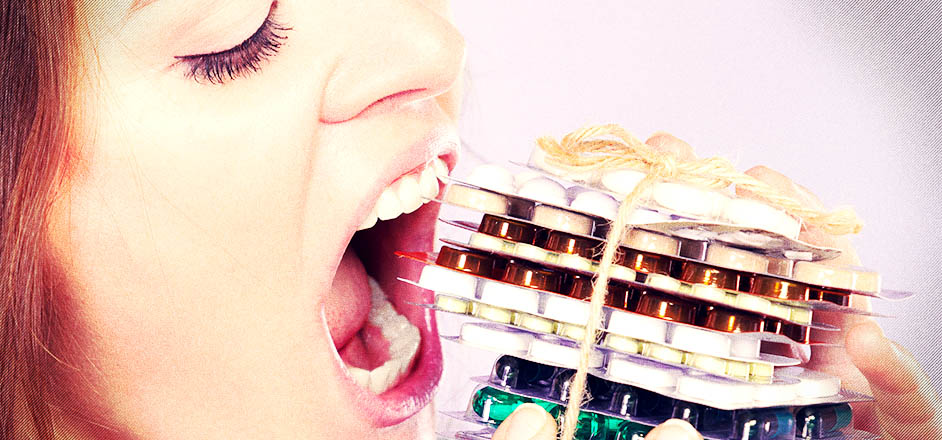You can kill the pain with a pill or a hit. But something else can get nixed as collateral damage in the process entirely: empathy.
Tracey Helton Mitchell (in a now typical American story) started taking opioid painkillers after getting her wisdom teeth extracted. It quickly lead to heroin, to shooting up on the bottom of her feet, selling her body, living in an alley and, of course, feeling detached from reality.
"At the phase in an opioid user's day, when you are fully under the influence, it can be hard to take in emotional information," Mitchell, author of "The Big Fix: Hope After Heroin," says via email. "You have hijacked your brain in such a way that it's hard to connect with anyone."
Remember that scene in Trainspotting, where the baby dies and Mark is stunned for a minute and tries to think of something to say to the screaming heartbroken mom — something sympathetic, something human? And then Mark just says, "I'm cooking up," while getting out the needle, the spoon … then the mom asks for a hit, too. It's fiction. Kind of.
"Opioids may dull the experience of empathy for another's pain," Bernadette Fitzgibbon, an expert on pain, says.
Empathy is a reason you help up an old lady who's fallen down. You suffer with those you see suffering, because you know what it feels like to suffer, too. Research has found painkillers interrupt this natural feedback loop though.
"When you suppress your own ability to feel pain, the emotional component of pain, you influence your ability to feel stress or pain in somebody else," says Dominik Mischkowski. As a PhD student at Ohio State, he helped prove that it isn't just hard drugs like heroin that reduce empathy: over-the-counter stuff is bad as well. In his study, people who took Tylenol — mild Tylenol — felt less empathy for real people who were startled by a loud sound, or who were made to feel like losers when they were excluded from participating in a game.
"Empathy for pain is grounded in self pain," was the title of another study published on pain in the Proceedings of the National Academy of Sciences.
"The ability to empathize is theorized to stem from deep emotional brain networks (dedicated to processing pain/emotions) and therefore may be disrupted by opioids (which have a large effect on many brain regions)," says Daniel Kusko. He's the manager of a lab at the Institute of Cognitive Science at the University of Colorado Boulder that studies these sorts of things.
It's important to note that these are generalizations. Many — maybe most — people who use heroin and opioids and Tylenol by the truckfull are perfectly empathetic people.
But, a few aren't.
When you see, for example, a photo posted by the police in East Liverpool, Ohio, showing two parents passed out in the front of a car as their 4-year-old sits in the back seat, or a video showing a young mother who had overdosed lying unconscious on the floor of a store in Lawrence, Mass., as her 2-year-old cried and tugged at her arm — as The New York Times noted, you also won't be surprised to learn another study showed opioids blunt parenting instincts. Yes, people addicted to opioids literally see babies as less cute, and therefore are less likely to care for them. Kids of the opioid crisis are desperate for help.
We tend to think about drug use as an individual decision. It is. But individual decisions about what drugs we use accumulate into the type of society we have.
Says Mischkowski, "We have to assume that these effects in the lab extend to real life, and you can expect something like that also having effects on a broader societal level."
In some corners, lately, it's been feeling like a cold rain's been falling. A lot of cold shoulders, a lot of cold indifference. Could some of that chill be the accumulated effects of millions of people dulling their own pain and, without realizing it, dulling their empathy, too? "Empathy is the glue that lets you interact with others in a constructive manner," Mischkowski says. Is the opioid epidemic part of why society, some days, feels like it's crumbling?
Not all drugs are bad. A whole class of drugs are called empathogens because they increase your empathy. MDMA — often mixed with other drugs and sold as molly — is terrific at this, and it almost had the street name "empathy" instead of "ecstasy" (but how many people know what that word actually means)? Nor is ecstasy the last drug that makes you feel empathy: doctors are researching new pills that can boost the emotion. In studies, one pill made subjects distribute money more fairly, another boosted social interaction. Both are being called "compassion pills."
And one more interesting find from the research: naloxone, the antidote to opioid overdose, is also the antidote to the reduction in empathy that comes from opioids.
So how is it we'll fix the growing concern of an emotionally dead generation? We could all carry around narcan, and shoot ourselves up when we're struggling to feel others' pain. Or we could hope that science builds a legal compassion pill. Or we could do like Mark from Trainspotting, and just cook up until there's no need left to cry.



Leave a Reply
You must be logged in to post a comment.